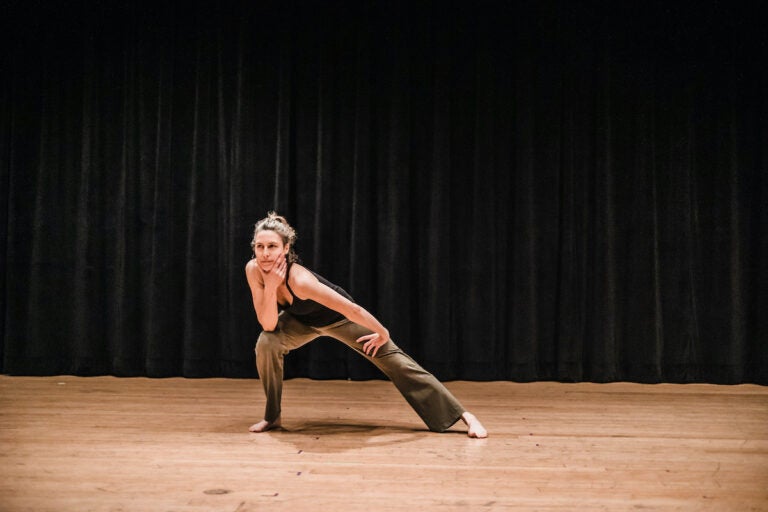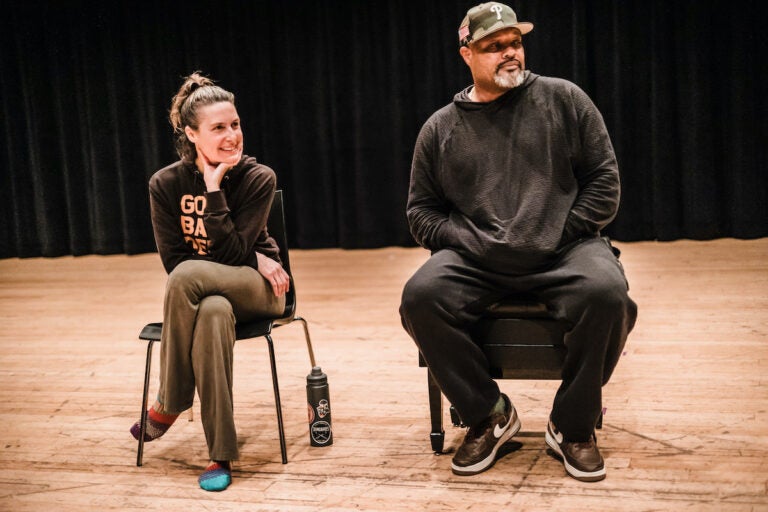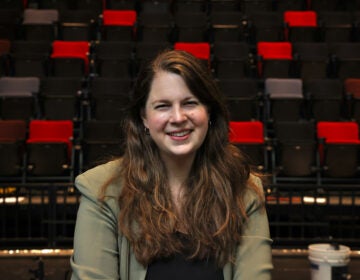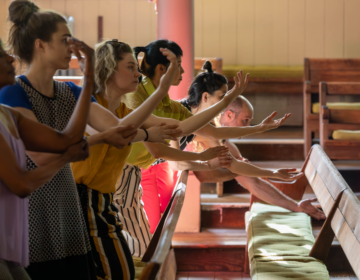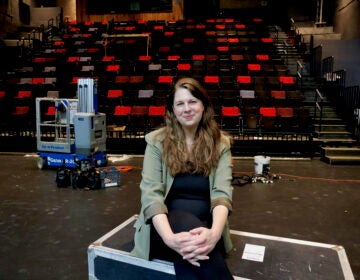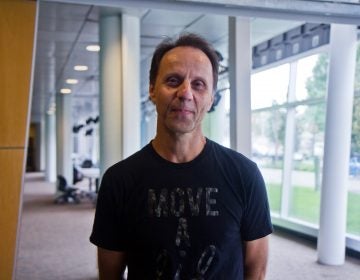Philly Fringe announces an expanded 2025 festival in September
The 29th annual Fringe Festival has more shows than ever. It begins Sept. 4.
Listen 1:25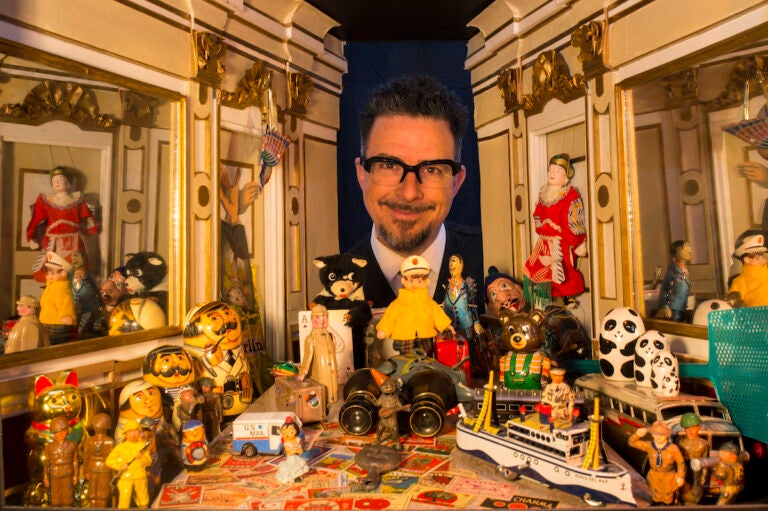
Thaddeus McWhinnie Phillips, creator of "Around the Word in 80 Toys" (Courtesy Philly Fringe Fest)
From Philly and the Pa. suburbs to South Jersey and Delaware, what would you like WHYY News to cover? Let us know!
As many theater and performing arts organizations are paring back and reorganizing their seasons to adjust to the lingering effects of the pandemic downturn, the Philly Fringe Festival offers a ray of optimism. It’s growing and so is its audience.
The 2025 Fringe lineup announced Tuesday morning features a record 331 productions in 96 locations, with a record 129 first-time creators. It runs Sept. 4–28.
Festival CEO Nell Bang-Jensen expects audience numbers this year to break records, too. This is the first Fringe Festival programmed and coordinated under her leadership, having stepped into the role during last year’s festival.
“2024 was better than ever. We had over 30,000 people come to the Fringe Festival,” she said. “That was huge for us.”
The Fringe is presenting eight headline works in the curated portion of the festival, with the rest being individual artist-produced shows under the Fringe banner.
The headliners include some names familiar to longtime attendees: Philly-born choreographer Rennie Harris will premiere “Beautiful Human Lies: Chapter 4,” an evening-length piece with dancer Megan Bridge that dramatically expands an original 7-minute dance the two premiered at Fringe 25 years earlier.
Fringe favorite Thaddeus McWhinnie Phillips will return with the “Around the World in 80 Toys,” an adventure told via toys living in a toy shop. Philadelphia’s 1812 Productions, which has often produced work concurrent with the Fringe, will be featured for the first time with the premiere of “La Otra,” a “magical realism” comedy set in Colombia and performed bilingually.
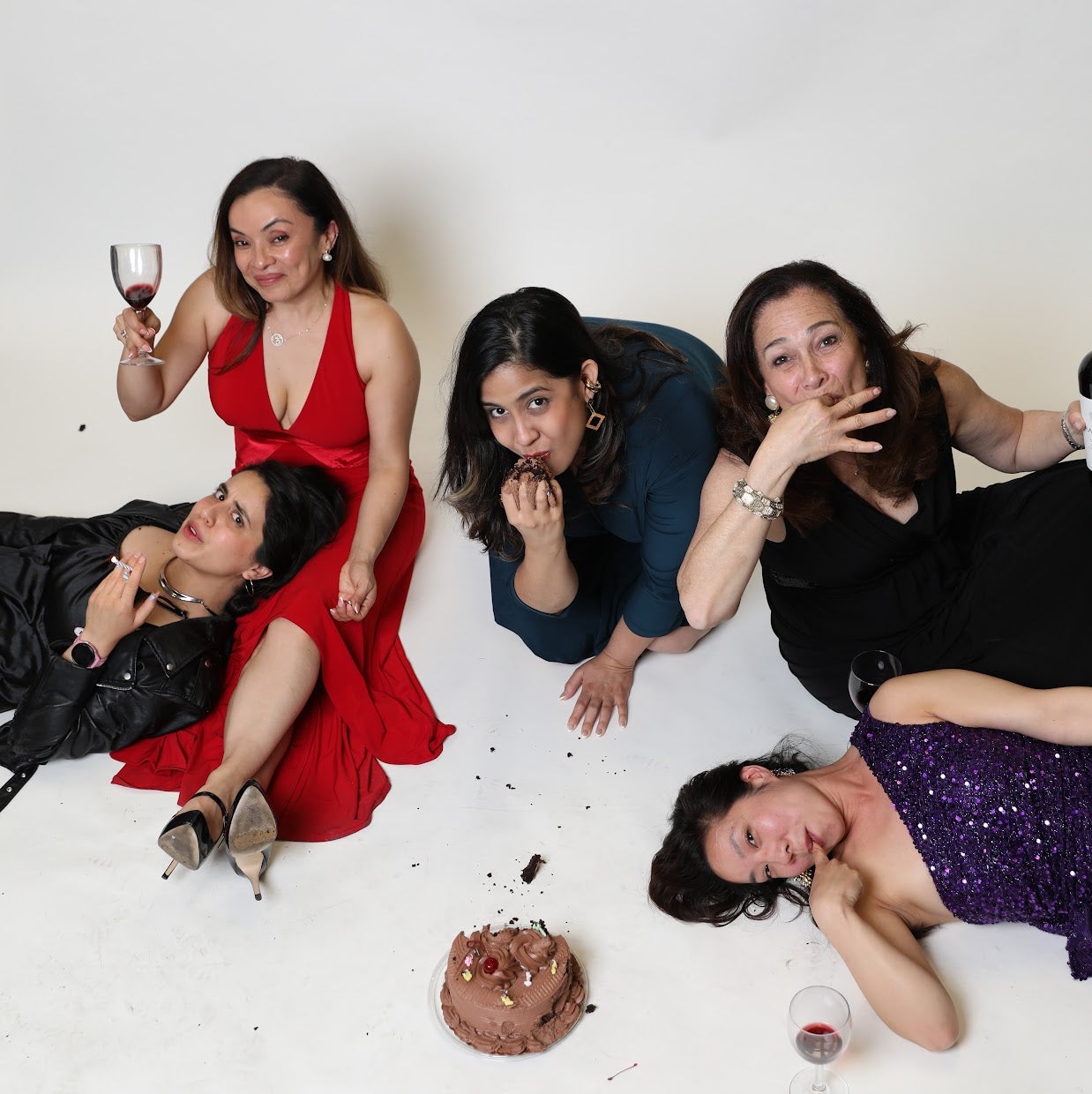
Among the international invitees are nora chipaumire, a Zimbabwe-born, Brooklyn-based choreographer whose piece “Dambudzo” is set in a makeshift bar in a private Zimbabwe residence where neighbors discuss social and political resistance; and Toronto-based artist Clayton Lee’s “The Goldberg Variations” is based on both Johann Sebastian Bach’s famous music cycle and the professional wrestler Bill Goldberg.
Fringe festivals in other cities have struggled. Capital Fringe in Washington, D.C., shut down earlier this year after 20 seasons. Last year, The Public Theater in New York City shuttered its Under the Radar Festival of experimental theater, only to have it pop up again this year as a newly formed independent organization.
Bang-Jensen said many theater companies are leaning toward familiar and well-liked pieces to ensure a receptive audience, leaving fewer opportunities for artists making new work.
“If you look at Broadway titles, a lot of them are movie titles or shows based on albums by celebrities,” she said. “That’s all well and good, but a lot of places for making new work — because it’s riskier, because it’s more of an experiment and perhaps less financial return for those arts organizations that used to support new work — are not doing it anymore.”
Aversion to risk turns theater festivals which have remained viable — like Philly Fringe — into magnets for artists with fewer options. Case in point is Phillips, who was asked by Disney to co-create an immersive theater piece “The Magic Box” combining many familiar Disney characters and storylines into a single fantasy mash-up.
“The Magic Box” has wrapped up its world tour. Phillips is now returning to Philadelphia with “Around the World in 80 Toys,” an homage to silent filmmaker, magician and tinkerer Georges Méliès.
“[‘The Magic Box’] is probably how he pays his bills, and this show is who he gets to be as an artist,” Bang-Jensen said. “We’re really proud to be that platform, because it’s hard for artists to figure out that balance in their own lives and find the work that feeds their souls.”
Bang-Jensen praised the artists in the festival for both their creative virtuosity and their “moral courage,” challenging audiences to consider ideas outside their normal ways of thinking, particularly during a political era when partisan perceptions tend to be deeply entrenched.
“Audience members willing to put themselves in that space in 2025 where there’s not a clear answer, where they don’t know what to think — that’s a huge gift,” she said.
Bang-Jensen pointed out that 2025 started with the administration of President Donald Trump, who within weeks of inauguration set his sights on the Kennedy Center, replacing its board so that he could be named chair of the performing arts center.
During a whirlwind presidency dedicated to overhauling global trade, higher education and government itself, Bang-Jensen noted how quickly Trump leveraged the arts toward his political agenda.
“It was a striking acknowledgement by our federal government of how much the arts matter,” Bang-Jensen wrote on Instagram in February. “Even President Trump knows that if he is going to reshape a society, one of his first items of business must be addressing its cultural institutions.”
“What he doesn’t know is the power of these arts institutions, culture workers, artists and audiences to come together and support one another,” she wrote.

Saturdays just got more interesting.
WHYY is your source for fact-based, in-depth journalism and information. As a nonprofit organization, we rely on financial support from readers like you. Please give today.



